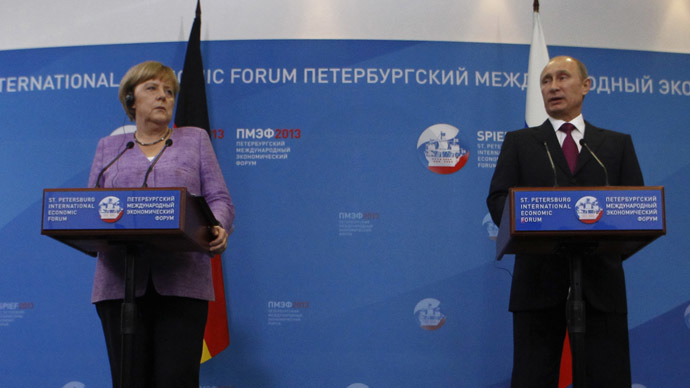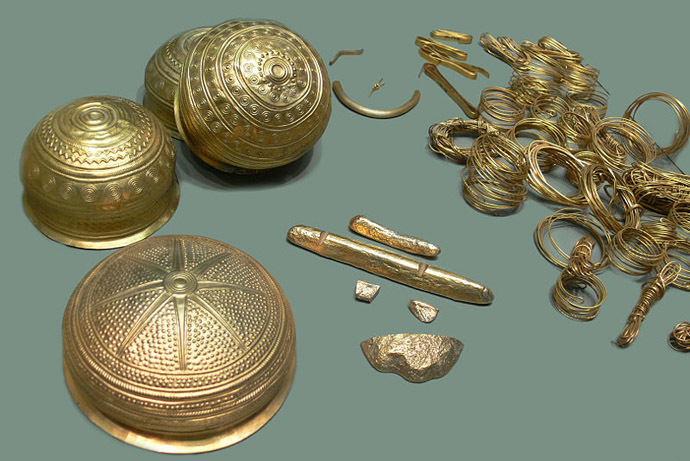Loot or trophy? Russia and Germany in choppy waters over captured WWII art

A dispute over the ownership of priceless artifacts brought to Russia after World War II hung over Angela Merkel’s meeting with Vladimir Putin in St. Petersburg, as the two leaders cancelled and then re-scheduled a visit to an exhibition of German art.
Initially, Putin and Merkel were scheduled to end the Chancellor’s tour in Russia on Friday by making speeches side-by-side at the opening of an exhibition at the Hermitage museum, St. Petersburg. The show – 'The Bronze Age of Europe: Europe Without Borders' – includes the so-called Treasure of Eberswalde, the largest hoard of golden pre-historic objects ever discovered in Germany, set to go on display for the first time since 1945.
But around midday, the German media stated that the Russians cancelled the speeches, setting off a diplomatic incident over what Germans call ‘looted art’ – over a million art objects taken from German collections that have still not been returned.
German government spokesman Georg Streiter said that "Merkel would perhaps have once more referred to the German position on the issue of 'looted art'."
“Germany and Merkel maintain the position, backed by international law, that the objects brought to Russia should be returned,” Streiter told the German media in Berlin, “Russia has a different view.”

In response, the Russian President’s press service insisted that no speeches were ever planned, and the two leaders merely intended to walk through the exhibition for a photo opportunity, and Mikhail Piotrovsky, the director of the Hermitage said that “there are no political motives behind the cancellation”.
But the damage was done.
Then during the final press conference, the leaders performed an about turn, and said that they “found the time” to visit the exhibition after all.
Yet, no solution to the diplomatic impasse itself seems in sight. When asked about possible restitution, Putin offered a thinly-veiled denial on what he admitted was “a sensitive issue”.
“If we start a public debate about the restitution of German valuables, experts could quickly tote up their value and measure how it stacks up next to the damage done by Nazi forces to Russian and Soviet objects of cultural value. I believe this is the wrong way to go about it,” said the Russian president.
Merkel stood beside in stone-faced silence.
International law on return of ‘trophy art’ is convoluted, with intersecting jurisdictions of international and domestic laws, and different provisions depending on who originally owned the art (for example, if it can be proven that art taken from Germany was previously forcibly taken from a Jewish victim of the Holocaust, it is easier to return). Yet, Germany believes that international rules show broadly that it is entitled to the restitution of the majority of the pieces kept in Russia’s museums (many of which have rarely gone on display).
The Russian parliament, however, passed a law forbidding the restitution of German artworks more than a decade ago, once again making exceptions for Jewish victims of the Nazi regime. Russia also points out that the majority of captured artworks – more than 1.5 million pieces – was returned in the late 1950s to the former East Germany, as a goodwill gesture.
Still, among the world-famous pieces that remain in Russia is Priam’s Treasure, a cache of archaeologist Heinrich Schliemann’s discoveries at what he claimed to be the site of Troy in the 1870s.













